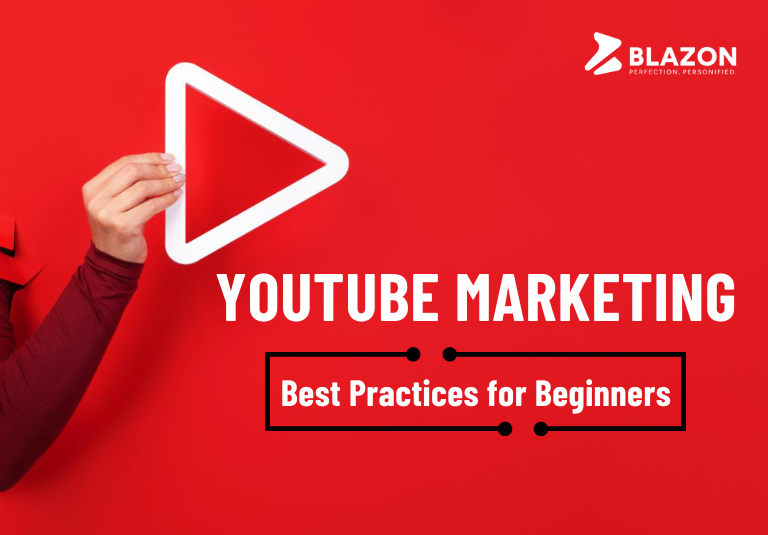What: This article explores about necessary skills required to be a Social Media Manager.
Why: To guide junior-level social media managers to specialize in their field.
81% of organizations use social media to increase their brand awareness. Behind every successful business stands a social media manager who is the brand’s voice.
The social media manager is the professional who plans and executes content to create a brand’s online identity. Some people still think that the only job of a social media manager is to post stuff online. However, a list of skills is required to become a successful social media manager.
Stay with me till the end to learn more about these skills, which will help you grow as a social media manager.
Source: Freepik
Technical Skills
Social media managers must know a bunch of technical stuff to establish their brand online. These skills are the primary requirement for their job. Additionally, these skills help the brand look good online, connect with the community, and grow strategically.
Let us dive into these technical skills required for a social media manager:
1. Research
Social media managers require strong research skills to understand the algorithm of online platforms. Developing research skills helps you to make intelligent decisions and successfully manage social media.
You need to understand your audience, know what your competitors are doing, and keep up with the latest trends. Audience research helps you create content that people like.
Additionally, checking what your competitors are up to helps you learn from them and find your unique angle. Following trending topics and hashtag research keeps your content fresh and visible.
How To Do?
- Clearly outline what you aim to achieve through social media research.
- Understand your audience’s demographics, interests, and behaviors.
- Analyze competitors to learn from their strategies and identify opportunities.
- Stay updated on industry trends and popular topics for relevant content.
- Regularly analyze performance metrics and user feedback for strategy refinement.
2. Content Planning and Creation
One of the most essential skills for the social media manager is to plan content creation for different social media platforms.
Planning content means deciding what you want to talk about your brand. While creating content means making engaging posts, articles, or videos. A well-planned content strategy ensures you’re connected to build a strong bond with your audience.
How To Plan?
- Research and know your audience’s preferences and behaviors.
- Identify key themes and topics relevant to your brand and industry.
- Develop a content calendar to organize and schedule posts consistently.
- Tailor content for each platform using text, images, and videos.
- Regularly analyze metrics and user feedback to refine content strategy.
- Adapt content strategy to the evolving needs and interests of your audience.
- Collaborate with your team or external creators for diverse perspectives.
3. Data Analysis
Data analysis for social media managers involves studying and interpreting data from various platforms. Social media managers perform data analysis to check their campaigns’ performance and determine their audience.
The main goal is to make intelligent decisions and improve strategies for better social media campaigns.
How to Perform Data Analysis?
- Define goals for social media efforts.
- Leverage tools like Facebook Insights.
- Track performance trends over time.
- Analyze data based on demographics or time.
- Refine strategies based on insights.
4. Copywriting
Copywriting skills for social media involve creating words that grab attention and convince people.
Each platform has its unique style: LinkedIn leans towards professionalism, Instagram adopts a casual vibe, and TikTok requires a more personal touch.
It’s crucial because it helps your brand stand out, and build a unique personality. It encourages people to engage with your content or take specific actions like buying a product.
How to do Better Copywriting?
- Tailor your writing to match the interests and needs of your audience.
- Keep it simple and reach the point to maintain reader engagement.
- Stick to a consistent tone and style for a strong, recognisable brand voice.
- Polish your writing by editing for grammar, spelling, and flow.
5. Designing
Businesses that invest in custom-made visual content experience a remarkable seven times higher conversion rate. It is no surprise that every business is giving priority to visually appealing designs of social media posts.
Designing social media posts involves creating and arranging visual elements to deliver a message or information on a social media platform. These visuals are vital in grabbing people’s attention and getting the brand message across to clients effectively.
How to do?
- Understand your audience.
- Define a clear message for your social media post or campaign.
- Maintain brand consistency.
- Platforms like Designcap, Canva or Adobe Spark offer user-friendly interfaces for creating social media posts.
6. Knowledge of SEO
Unlike other technical skills, SEO is essential for social media managers. SEO is about including relevant keywords and backlinks in your social media profiles and posts.
When your content includes these keywords, search engines are more likely to show your social media profiles or posts in their results.
How to do?
- Identify and use relevant keywords in your social media content.
- Make frequent updates to your social media accounts with interesting and new information.
- React to messages and comments to engage your audience.
- Include links to your website or essential pages in your social media posts.
7. Community Management
There are different social media platforms out there. Due to this, businesses have started building their community engagement on those platforms.
Social media managers are the ones who engage in this community with their followers. This means responding to comments, starting conversations, and sharing content that resonates with them.
When you actively manage your community, you are building trust and loyalty. Happy and engaged followers are likely to stick around, advocate for your brand, and even become customers.
How To Do?
- Keep an eye on what your community says, address their concerns, and celebrate their achievements.
- Be genuine, share behind-the-scenes glimpses,
- Ensure your interactions reflect your brand’s personality.
- It’s about creating a positive and inclusive online environment where people feel heard, valued, and excited to join your digital community.
8. Customer Service
Customer service involves managing inquiries, resolving issues, and providing helpful information to your customers online. When you provide quick and helpful responses on social media, you show that your brand cares about its customers. This positive experience can turn a one time buyer into a repeat customer.
How To Do?
- Respond quickly to customer inquiries or complaints.
- Acknowledge and address customer concerns promptly.
- Resolve sensitive issues privately by taking conversations offline when needed.
- Maintain a positive and helpful tone in all interactions.
Soft Skills
Soft skills are about being good at things like talking, teamwork, and getting along with people. These skills are important for doing well in your personal and work life.
Let us break down these soft skills necessary for a social media manager.
1. Communication Skills
Social media managers are the voice behind every brand. Their communication skill is an essential skill to build a connection with their audience.
Effective communication builds trust, strengthens brand identity, and creates a positive online community.
How to Communicate?
You should express ideas clearly, engage with the audience in a friendly manner, and adjust your tone to suit the brand’s personality.
2. Social Media Trends
Each social media platform has a bit of different behavior that users exhibit. These behaviors are also called social media trends.
Social media trends are a powerful strategy as users are more likely to interact with content that aligns with current trends. As a social media manager, you must know what types of content, features, or topics are gaining attention among users.
How To Do?
- Stay updated on what’s happening in your industry and the latest social media trends.
- Study your audience’s behavior and preferences to tailor your content accordingly.
- Be ready to change your content strategy fast when new trends come up.
- Incorporate trending hashtags and formats to boost visibility.
- Ensure your brand’s voice aligns authentically with trends and creatively include them in your content.
3. Creativity
Being a social media manager means you need to be creative. It involves social media storytelling and finding innovative ways to show your brand or message.
Creativity is crucial because it helps you stand out in the crowded online space. The creative content captures attention, which increases engagement and brand awareness.
How to Increase Creativity?
- Use different ideas and formats.
- Use visuals, storytelling, and humor to connect with your audience.
- Take risks and push boundaries in your creativity.
- Analyze your performance to refine your approach.
4. Experimenting
The challenge for the social media manager is to develop different backup plans for their social media campaigns.
The experimenting can include different strategies, content types, and posting schedules to see what works best for your brand or business. It helps brands to connect with your audience, achieve your social media goals and drive traffic to your platform.
You Can Experiment by:
- Review metrics like likes, shares, and comments consistently to know how the audience interacts with your content.
- Look for trends or patterns in the data to identify what resonates with your audience.
- Use insights gained from your metrics to refine your content and posting strategy.
- Leverage experimentation for immediate, real-time feedback on your social media efforts.
- Be flexible and adapt your strategy based on the feedback to stay relevant and engaging.
- Continuously optimize your social media approach to achieve better results over time.
5. Adaptability
The world of social media is evolving. It means what worked yesterday might not work today. The social media manager continuously needs to adapt, learn, evolve, and adjust their strategies.
Social media managers have to adjust their strategies based on emerging trends, platform updates, or shifts in audience behavior. It helps you keep up with what works in the fast-paced world of social media.
How to do?
- Regularly update your skills.
- Stay informed about industry changes.
- Be ready to change your content strategy when needed.
- Keep experimenting with different approaches.
- Monitor analytics to track performance.
- Learn quickly from both successes and failures.
6. Budgeting
Every brand has a certain amount separated for their social media campaign. Budgeting for a social media manager involves determining how much money you’ll divide for their activities.
It helps to ensure that the allocated budget aligns with your marketing strategy and contributes to reaching your business objectives.
How to do?
- Define specific objectives for your social media strategy.
- Find out who your followers are and which social media platform they use.
- Set a budget considering how much it will cost to create content, run ads, and use social media tools.
- Track key metrics to evaluate social media effectiveness and adjust your budget if needed.
How can you Develop Social Media Management Skills?
You want to grow in the field of social media management. Then, you have to learn the right strategies and hands-on tricks. Let’s dive into how you can develop the skills required to thrive in the digital world.
- Enroll in a social media management course.
- Follow industry leaders and read blogs for trends.
- Connect and learn by participating in online communities.
- Take on volunteer projects to develop practical experience.
- Do internships to enhance practical skills.
- Manage your own social media accounts actively.
- Experiment with various tools and platforms.
- Attend virtual events for industry insights.
- Seek mentorship from experienced professionals.
Key Takeaways
The growth in social media management requires creativity, adaptability, and strategic thinking. These skills will help you grow in the digital landscape and boost engagement for your brand.
With effective social media management, you can make your brand stand out in the digital crowd and build a meaningful relationship with your audience.
FAQS
1. What Qualifications do I Need to be a Social Media Manager?
A social media manager needs a bachelor’s degree in marketing or communications. However, the degree is not a mandatory requirement for different organizations. You need to get the required experience in social media marketing and strong communication skills.
2. Is Social Media Management Difficult?
The social media manager is a bit difficult as the job requires keeping up with changes on platforms like Instagram and Twitter. You need to be creative, respond to messages, and use data to determine what works. It can be challenging, but it’s also fun if you enjoy being creative online!
3. Is a Social Media Manager in Demand?
Yes, a lot of people and businesses want someone to help them with social media because it’s important for promoting and connecting online.
4. What is The Next Step After Becoming a Social Media Manager?
After becoming a social media manager, you might want to gain more experience and learn about specific areas like advertising or data analysis. You could also consider getting additional certifications and gaining more skills. Additionally, you can explore higher-level roles like a social media strategist or digital marketing manager.














